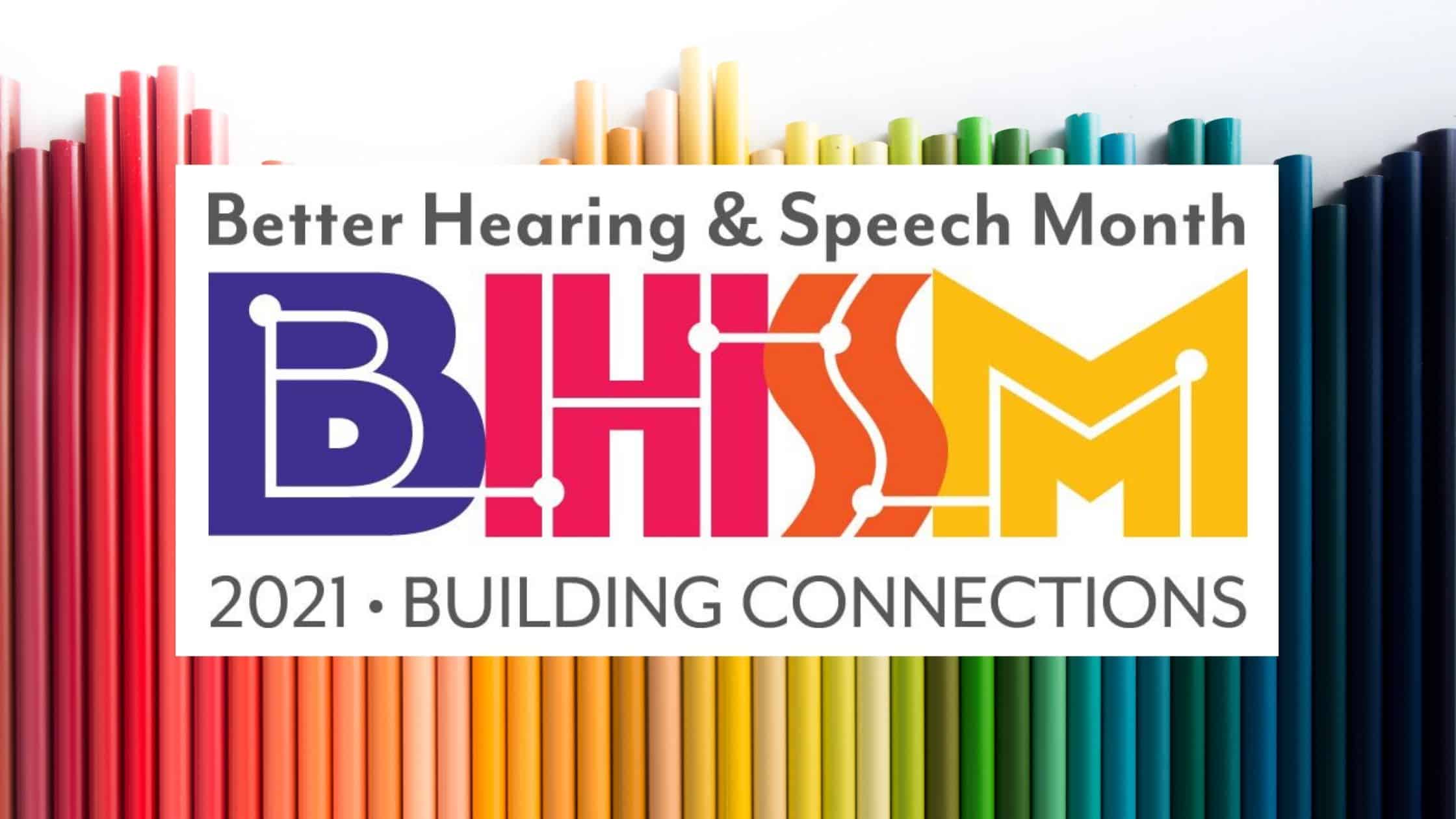May is the American Speech-Language-Hearing Association’s (ASHA’s) Better Hearing and Speech Month (BHSM). Each May, ASHA focuses on outreach to spread awareness of hearing loss and related issues to increase public understanding of the importance and availability of treatment. The theme this year is “Building Connections,” and with vaccination rates on the rise to protect against infection from COVID-19, we will likely soon be returning to some semblance of normal life and focusing on building connections in the world once more.
ASHA has divided the month into four sub-themes; one for each week:
- Week 1: Untreated Hearing Loss in Adults
- Week 2: Early Intervention & COVID-19
- Week 3: The Role of Health Care SLPs (speech-language pathologists) in COVID-19 Recovery
- Week 4: Summer Skill Building, Hearing Protection for School-Aged Children
More information is available at ASHA’s website as each week begins.
Hearing Loss and COVID-19
Prevention measures related to COVID-19 have presented special difficulties for those with hearing loss. Face masks muffle the sound of speech and prevent lip reading, while social distancing also decreases the intelligibility of speech. Quarantines have kept us mostly indoors, but as more and more businesses reopen and we spend more time out in the world, masks and social distancing will still be a factor.
Even mild hearing loss (defined as 20–40 dBHL) presents problems for those who have it, and it is unfortunately undertreated. Only about 1 out of 5 people who could use hearing aids are wearing them, and with the additional challenges posed by face masks and social distancing, mild hearing loss has become even more of a problem. Most people seem to think that mild hearing loss is not a big enough issue to require hearing aids, but research conducted in recent decades points to the opposite.
Why Mild Hearing Loss Should Be Treated With Hearing Aids
While many people with mild hearing loss can carry on a one-on-one conversation in a quiet place, background noise is a serious impediment to understanding. As we start to make adjustments to our lifestyle to accommodate mild hearing loss, we tend to spend less time outdoors, get less physical exercise, and avoid larger gatherings. This puts a hamper on our social lives, while also setting an unfortunate precedent for minimal exercise and more social isolation.
Those with untreated hearing loss are also about seven times more likely to report that they have memory issues than those without hearing loss in the same age group. Once people get hearing aids, they frequently report an improvement in short-term memory. This may be because of the extra cognitive load required to understand speech while dealing with hearing loss. As we have to ask people to repeat themselves, parce together sentences out of the bits and pieces we hear, and make guesses based on context clues, our brains are so focused on understanding that actually committing the information to memory becomes more difficult.
Regular Hearing Tests
ASHA and the Better Hearing Institute, both non-profit organizations, recommend getting a hearing test once a decade until age 50, and once every three years thereafter. Those with higher-risk professions or medical histories should be tested even more frequently. Because hearing loss progresses relatively slowly, it’s often difficult for us to know when it has gotten more severe. Regular hearing tests create an objective measure of your hearing ability over time, which both helps you to know whether you’re adequately protecting your hearing in your daily life, and also helps you know when hearing loss has progressed to a degree that hearing aids should be worn.
The earlier we start wearing hearing aids, the less likely we are to experience the unfortunate consequences of untreated hearing loss. Prevention is the best medicine, and this applies both to protecting our hearing to help avoid hearing loss, and to treating hearing loss to avoid the “cascade of negative effects” associated with untreated hearing loss. There is always an adjustment period when we start wearing hearing aids, but even this process tends to be easier when we start wearing them sooner than later. The more our brains get used to not hearing, the harder it is to get used to hearing again.
If you or a loved one may be dealing with hearing loss, make an appointment for a hearing test today and find out if hearing aids are right for you. Celebrate Better Hearing and Speech Month by improving your hearing ability!

